
October 23, 24 and 25, 2025
Royal Palm Hall | Campinas, SP, Brazil
Your access to New Frontiers of Medicine starts here
Expand your knowledge at the world’s largest Endocannabinoid Medicine Congress and achieve results where most cannot.
What is the WeCann Summit?
It is the leading and largest Medical Congress in the world focused on Endocannabinoid Medicine. The congress is organized by WeCann Academy, the top reference in medical education in this field of knowledge.
A perfect combination of high-quality technical content, updates on the latest research, an inspired and motivated medical community, and an elegant and pleasant environment.
The congress has become the official meeting point for the world’s leading experts in this field and for the main industries in the sector.
Who is the WeCann Summit for?
It is designed for physicians of all specialties and fields of practice.
In 2024, it brought together more than 1,400 doctors from 60 different specialties and areas of expertise.
Doctors from all Brazilian states and several countries attended the first edition of the WeCann Summit, studying and exchanging experiences to update their knowledge and seek better outcomes in their medical practice.
Why attend the WeCann Summit?
There are over 30,000 scientific articles on PubMed addressing the therapeutic potential of cannabinoid derivatives.
First-world countries like Germany, Israel, and Canada have already incorporated cannabis-based therapies into their healthcare systems.
The pharmaceutical industry is actively developing and patenting cannabis-based products. More than 40 products are already registered with ANVISA for pharmacy dispensing in Brazil.
Several Brazilian states and municipalities have approved bills to provide cannabis-based medicines through the public health system (SUS).
There are millions of patients suffering from severe, refractory, and disabling conditions who could benefit from therapies based on the endocannabinoid system.
Technical Cooperation


The International Association for Cannabinoid Medicines (IACM) is the leading global medical society dedicated to the scientific understanding and promotion of knowledge on Endocannabinoid Medicine. For over 20 years, the IACM has supported educational and research activities related to the medicinal use of cannabinoid derivatives.
With its strong legacy of commitment to the scientific understanding of cannabinoid derivatives and their therapeutic applications, the IACM is supporting a congress in Latin America for the third time, joining forces with WeCann Academy to share highly qualified and reliable scientific knowledge on the subject.
Over 3,000 doctors learning together and living this experience.
The largest medical congress in the world in the field.
Speakers from 4 continents in one place.

Doctors from over 50 specialties and areas of practice studying and learning together.

A wave of highly qualified and exclusive technical content.

Content tracks tailored for doctors at different stages of knowledge.


Secure your pass and stay ahead of the New Frontiers of Medicine
Content: The best curated content with over 40 speakers — the top national and international authorities in Endocannabinoid Medicine.
Networking: The meeting point for colleagues from Brazil and around the world who seek to update and innovate their medical practice.
Exhibition Fair: The most qualified fair of products and innovations featuring the latest advancements and leading industries in the sector.
Gastronomy: Meals included in the pass price and a pleasant environment to enjoy the event and connect with fellow professionals.
Experience: Thematic cocktails and a closing show — because you deserve to celebrate this immersive journey of study and learning in the field.
WeCann Academy: Hosted by the leading authority in medical education in this area of knowledge.
Secure your tickets
PASSAPORTE
STANDARD
- Welcome Kit Standard
- Access to Content Stages (subject to availability)
- Access to the Innovation and Exhibition Fair
- Access to the Networking Cocktail
- Access to brand experience areas and activations
- Lunch included on event days
- Access to exclusive Mentoring Sessions with Event Speakers
- Exclusive check-in, no lines
- Exclusive access to luggage storage and coat check
- Access to the VIP Lounge (Experience Space) with more comfort, benefits, and surprises
- Surprise pre-event experience with WeCann Experts
- Special discount on flight and accommodation packages through the event’s official travel agency
- 1-year access to the WeCann Community with new content and weekly live sessions – R$ 2,497
- 30-day access to recorded talks* – R$ 697.00
Tier 4
12x R$99.75
or R$1,247.00 in full
PASSAPORTE
EXPERIENCE
- Welcome Kit exclusivo Experience+
- Access to Content Stages (subject to availability)
- Access to the Innovation and Exhibition Fair
- Access to the Networking Cocktail
- Access to brand experience areas and activations
- Lunch included on event days
- Access to exclusive Mentoring Sessions with Event Speakers
- Exclusive check-in, no lines
- Exclusive access to luggage storage and coat check
- Access to the VIP Lounge (Experience Space) with more comfort, benefits, and surprises
- Surprise pre-event experience with WeCann Experts
- Special discount on flight and accommodation packages through the event’s official travel agency
- 1-year access to the WeCann Community with new content and weekly live sessions – R$ 2,497
- 30-day access to recorded talks* – R$ 697.00
Tier 4
12x R$233.08
or R$2,897.00 in full
Testimonials
Dr. Katia de Vasconcellos
Psychiatrist
Dr. Luiz Roberto Medina dos Santos
Surgeon
Dr. Rizzia Borges
Cardiologist
The WeCann Summit was a turning point in my clinical practice! No one will ever be the same after this Congress. Treating people is far more important than treating diseases!
Check out some of the speakers
who will be joining us in 2025.
Anne Schlag


Anne Schlag
Dr Anne Katrin Schlag is a Chartered Psychologist and Head of Research at Drug Science. She completed her PhD in Psychology at the London School of Economics and Political Science, before working as Lecturer at King’s College London where she developed her expertise across the spectrum of science and policy making, risk perception, risk management and risk communication. She holds Honorary Fellowships at both Imperial College London and King’s College London.
Within her role at Drug Science, she leads the research for the Medical Cannabis Working Group, focusing on controversies surrounding medical cannabis, the improvement of patient access, and the continued development of education and stakeholder communication about medical cannabis. Dr Schlag is currently working on progressing the scientific evidence base of medical cannabis to include Patient-Reported Outcomes, observational studies (such as T21) and the application of Multi-Criteria Decision Analysis to assess the benefits and safety of medical cannabis.

Joe Tafur


Joe Tafur
Dr. Tafur is a physician specialized in Integrative Medicine. He studied at the University of California, San Diego (UCSD) and completed a residency in Family Medicine at UCLA. Following a postdoctoral fellowship in Psychiatry at UCSD, he practiced as a family physician in the USA before beginning immersive work in the Peruvian Amazon.
In 2011, he co-founded the Nihue Rao Spiritual Center, where he trained in traditional Amazonian medicine and Shipibo curanderismo. This transformative experience inspired his 2017 book The Fellowship of the River, which narrates his journey bridging modern medicine and spiritual healing practices.
Dr. Tafur also founded Modern Spirit, a non-profit organization dedicated to researching spiritual healing effects, including the Modern Spirit Epigenetics Project, which is connected to MDMA-assisted psychotherapy studies. In 2019, he established the Ocotillo Center for Integrative Medicine in Arizona, where he provides integrative medical services.

Sagnik Bhattacharyya


Sagnik Bhattacharyya
Professor Sagnik Bhattacharyya is Professor of Translational Neuroscience and Psychiatry at King’s College London and a consultant psychiatrist at the Maudsley Hospital. He graduated in Medicine from Calcutta Medical College and earned his PhD in 2010 from the same institution where he currently works. His scientific career is especially focused on the clinical and neurobiological effects of cannabinoids.
He leads the Translational Neuroscience and Psychiatry group, which is responsible for several randomized clinical trials involving cannabidiol (CBD), such as the CANTOP-RCT, which targets individuals at high risk of developing psychosis, and the CAN-PDP, which investigates the use of CBD in patients with Parkinson’s disease-related psychosis. He also conducts studies in dementia using the medication Sativex®. His research employs advanced brain imaging technologies (fMRI, PET, MRS) and pharmacological challenge models to study the effects of THC and CBD on the human brain, and he was one of the first to show that CBD may have antipsychotic properties.
Bhattacharyya is widely recognized for his contributions to the field of medical cannabis. In 2020, he was named by Expertscape as one of the two most influential global experts in the field of cannabis. He received the NIHR Clinician Scientist Award in 2012 and has been supported by organizations such as the ECNP, BAP, and the Medical Research Council. He was also awarded the NHS Innovation Fund prize in 2008 and is frequently invited to speak at international conferences in psychiatry and neuroscience.
In addition to his academic roles, his research has made a significant impact on the development of clinical evidence regarding the therapeutic use of cannabidiol, directly influencing clinical guidelines and public policy related to the use of cannabis in treating psychiatric and neurological disorders.
Below is a selection of his main publications in the area:
Velayudhan, L., Dugonjic, M., Pisani, S., Harborow, L., Aarsland, D., Bassett, P., & Bhattacharyya, S. (2024). Cannabidiol for behavioral symptoms in Alzheimer’s disease (CANBiS-AD): a randomized, double-blind, placebo-controlled trial. International Psychogeriatrics.
Bhattacharyya, S., Appiah-Kusi, E., Wilson, R., O’Neill, A., Brammer, M., Williams, S., Perez, J., Bossong, M. G., & McGuire, P. (2024). Effects of cannabidiol on symptoms in people at clinical high risk for psychosis. World Psychiatry, 23(3), 451–452.
Colizzi, M., Bortoletto, R., Antolini, G., Bhattacharyya, S., Balestrieri, M., & Solmi, M. (2024). Biobehavioral interactions between endocannabinoid and hypothalamic–pituitary–adrenal systems in psychosis: a systematic review. Current Neuropharmacology, 22(3), 495–520.
Groening, J. M., Denton, E., Parvaiz, R., Brunet, D. L., Von Daniken, A., Shi, Y., & Bhattacharyya, S. (2024). A systematic evidence map of the association between cannabis use and psychosis-related outcomes across the psychosis continuum: An umbrella review. Psychiatry Research, 331, 115626.
Davies, C., Bossong, M. G., Martins, D., Blest-Hopley, G., … & Bhattacharyya, S. (2023). Increased hippocampal blood flow in people at clinical high risk for psychosis and effects of cannabidiol. Journal of Psychiatry Research.
Davies, C., Bossong, M. G., Martins, D., Blest-Hopley, G., … & Bhattacharyya, S. (2023). Hippocampal glutamate, resting perfusion and the effects of cannabidiol in psychosis risk. Journal of Psychiatry Research.
Pisani, S., Gosse, L., Aarsland, D., Chaudhuri, K. R., Ballard, C., Ffytche, D., Velayudhan, L., & Bhattacharyya, S. (2024). Parkinson’s disease psychosis associated with accelerated multidomain cognitive decline. BMJ Mental Health, 27(1), 1–10.
Davies, C., Bossaong, M. G., Martins, D., … & Bhattacharyya, S. (2022). Cannabidiol neuroimaging trial in high-risk psychosis subjects. Neuropsychopharmacology.
Bhattacharyya, S., Crippa, J. A. S., Allen, P., et al. (2012). Induction of psychosis by Δ9‑tetrahydrocannabinol reflects modulation of prefrontal and striatal function during attentional salience processing. Archives of General Psychiatry, 69(1), 27–36.
Bhattacharyya, S., Morrison, P. D., et al. (2010). Opposite effects of Δ9‑THC and cannabidiol on human brain function and psychopathology. Neuropsychopharmacology, 35(1), 764–774.
Bhattacharyya, S., Brammer, M. J., Fusar-Poli, P., et al. (2009). Modulation of emotional processing in cannabis users observed in the brain fMRI. Journal of Neuroscience, 29(1), 132–140.
Bhattacharyya, S., & McGuire, P. (2009). Role of glutamate and dopamine in clinical psychosis after cannabis use. Biological Psychiatry, 65(6), 481–490.
Bhattacharyya, S., Crippa, J. A. S., Allen, P., et al. (2008). Activation of the ventral striatum by THC. British Journal of Psychiatry, 192(4), 325–332.
Bhattacharyya, S., & Fusar-Poli, P. (2007). Imaging the effects of cannabis on brain function. European Archives of Psychiatry and Clinical Neuroscience, 257(8), 437–446.
Bhattacharyya, S., & Murray, R. (2006). Neurocognitive and genetic basis of the effects of cannabis on the brain. Schizophrenia Bulletin, 32(Suppl 1), S15–S18.
Beat Lutz


Beat Lutz
Dr. Beat Lutz is a Professor and Scientific Director at the Institute of Chemistry and Physiology at the Johannes Gutenberg University Medical Center, University of Mainz.
His primary research areas and publications focus on:
- Behavioral genetics in mouse models
- Mechanisms of learning, memory, and stress coping
- Epigenetic regulation of behavior
- Lipid signaling systems, particularly endocannabinoids and cannabinoid receptors
- Roles of the endocannabinoid system in anxiety, fear memory, stress adaptation, synaptic plasticity, adult neurogenesis, neural development, and energy metabolism
Below is a selection of his key publications in the field:
Martin-Garcia E, Domingo-Rodriguez L, Lutz B, Maldonado R, Ruiz de Azua I. Cannabinoid type-1 receptors in CaMKII neurons drive impulsivity in pathological eating behavior. Mol Metab. 2025 Feb;92:102096. doi: 10.1016/j.molmet.2025.102096. Epub 2025 Jan 7. PMID: 39788291; PMCID: PMC11787564.
Baddenhausen S, Lutz B, Hofmann C. Cannabinoid type-1 receptor signaling in dopaminergic Engrailed-1 expressing neurons modulates motivation and depressive-like behavior. Front Mol Neurosci. 2024 Apr 4;17:1379889. doi: 10.3389/fnmol.2024.1379889. PMID: 38660383; PMCID: PMC11042029.
Monory K, Ruiz de Azua I, Lutz B. Genetic Tools in Rodents to Study Cannabinoid Functions. Curr Top Behav Neurosci. 2024 Dec 17. doi: 10.1007/7854_2024_550. Epub ahead of print. PMID: 39680319.
Palmisano M, Ramunno CF, Farhat E, Dvir-Ginzberg M, Lutz B, de Almodovar CR, Bilkei-Gorzo A. Local cannabinoid receptor type-1 regulates glial cell activity and insulin-like growth factor-1 receptor signaling in the mediobasal hypothalamus. Mech Ageing Dev. 2024 Aug;220:111954. doi: 10.1016/j.mad.2024.111954. Epub 2024 May 29. PMID: 38821184.
Sánchez de la Torre A, Ezquerro-Herce S, Huerga-Gómez A, Sánchez-Martín E, Chara JC, Matute C, Monory K, Mato S, Lutz B, Guzmán M, Aguado T, Palazuelos J. CB1 receptors in NG2 cells mediate cannabinoid-evoked functional myelin regeneration. Prog Neurobiol. 2024 Dec;243:102683. doi: 10.1016/j.pneurobio.2024.102683. Epub 2024 Nov 9. PMID: 39528076
Hasegawa Y, Kim J, Ursini G, Jouroukhin Y, Zhu X, Miyahara Y, Xiong F, Madireddy S, Obayashi M, Lutz B, Sawa A, Brown SP, Pletnikov MV, Kamiya A. Microglial cannabinoid receptor type 1 mediates social memory deficits in mice produced by adolescent THC exposure and 16p11.2 duplication. Nat Commun. 2023 Oct 25;14(1):6559. doi: 10.1038/s41467-023-42276-5. PMID: 37880248; PMCID: PMC10600150.
Martínez-Torres S, Bergadà-Martínez A, Ortega JE, Galera-López L, Hervera A, de Los Reyes-Ramírez L, Ortega-Álvaro A, Remmers F, Muñoz-Moreno E, Soria G, Del Río JA, Lutz B, Ruíz-Ortega JÁ, Meana JJ, Maldonado R, Ozaita A. Peripheral CB1 receptor blockade acts as a memory enhancer through a noradrenergic mechanism. Neuropsychopharmacology. 2023 Jan;48(2):341-350. doi: 10.1038/s41386-022-01436-9. Epub 2022 Sep 10. PMID: 36088492; PMCID: PMC9750989.
Miederer I, Schmitt U, Bausbacher N, Röhrich J, Mildenberger P, Lutz B, Tüscher O, Schreckenberger M. Chronic Administration of Δ9-Tetrahydrocannabinol Alters Brain Glucose Uptake and Improves Waiting Impulsivity in the Rat. Cannabis Cannabinoid Res. 2023 Feb 17. doi: 10.1089/can.2022.0268. Epub ahead of print. PMID: 36800226.
Schwitter C, Lutz B, Bindila L. Extraction and Simultaneous Quantification of Endocannabinoids and Endocannabinoid-Like Lipids in Biological Tissues. Methods Mol Biol. 2023;2576:9-19. doi: 10.1007/978-1-0716-2728-0_2. PMID: 36152174.
Sánchez-de la Torre A#, Aguado T#, Huerga-Gómez A, Santamaría S, Gentile A, Chara JC, Matute C, Monory K, Mato S, Guzmán M, Lutz B, Galve-Roperh I, Palazuelos J. Cannabinoid CB1 receptor gene inactivation in oligodendrocyte precursors disrupts oligodendrogenesis and myelination in mice. Cell Death Dis. 2022 Jul 7;13(7):585 (#equal contributions).
Srivastava RK, Lutz B, Ruiz de Azua I. The Microbiome and Gut Endocannabinoid System in the Regulation of Stress Responses and Metabolism. Front Cell Neurosci. 2022 May 11;16:867267.
Zieglgänsberger W, Brenneisen R, Berthele A, Wotjak CT, Bandelow B, Tölle TR, Lutz B. Chronic Pain and the Endocannabinoid System: Smart Lipids – A Novel Therapeutic Option? Med Cannabis Cannabinoids. 2022 Mar 22;5(1):61-75.
Spohrs J, Prost M, Ulrich M, Plener PL, Bindila L#, Abler B#. Endocannabinoid system reactivity during stress processing in healthy humans. Biol Psychol. 2022 Mar;169:108281. (#Shared senior Authorship)

Patricia Montagner


Patricia Montagner
Dr. Patrícia Montagner is a neurosurgeon, board-certified by the Brazilian Society of Neurosurgery. She holds certification from the World Institute of Pain (WIP) in minimally invasive pain management procedures (FIPP – Fellow of Interventional Pain Practice) and has a specialization in Health Administration from Fundação Getúlio Vargas, São Paulo.
Currently, Dr. Patrícia serves as the medical director at Clínica NeuroVinci, located in the Greater Florianópolis area. She is the founder of WeCann Academy, a global community dedicated to the study of Endocannabinoid Medicine that connects experts from around the world to integrate scientific evidence with practical experience.
Dr. Patrícia is also the creator and host of the WeCann Summit, the largest medical conference worldwide focused on Endocannabinoid Medicine.
Below are her publications in the field:
Montagner PSS, Medeiros W, da Silva LCR, Borges CN, Brasil-Neto J, de Deus Silva Barbosa V, Caixeta FV, Malcher-Lopes R. Individually tailored dosage regimen of full-spectrum Cannabis extracts for autistic core and comorbid symptoms: a real-life report of multi-symptomatic benefits. Front Psychiatry. 2023 Aug 21;14:1210155. doi: 10.3389/fpsyt.2023.1210155. PMID: 37671290; PMCID: PMC10475955.
Montagner P, de Salas Quiroga A, Ferreira AS, Duarte da Luz BM, Ruppelt BM, Schlechta Portella CF, Abdala CVM, Tabach R, Ghelman R, Blesching U, Perfeito JPS, Schveitzer MC. Charting the therapeutic landscape: a comprehensive evidence map on medical cannabis for health outcomes. Front Pharmacol. 2024 Nov 26;15:1494492. doi: 10.3389/fphar.2024.1494492. PMID: 39660005; PMCID: PMC11628280.
Gallassi AD, de Oliveira AWC, Mendes NS, Filev R, Nakano EY. Evaluation of cannabidiol-based products in Brazil: how can current regulations influence their labeling quality? J Cannabis Res. 2025 Feb 22;7(1):12. doi: 10.1186/s42238-025-00270-2. PMID: 39987154; PMCID: PMC11846405.
Evan Cole Lewis


Evan Cole Lewis
Dr. Evan Cole Lewis is an adult and pediatric neurologist with specialized training in epilepsy and pediatric neurology. He holds a clinical appointment as Adjunct Assistant Professor in the Department of Pediatrics at the Hospital for Sick Children and the University of Toronto.
Dr. Lewis has treated thousands of adults and children with neurological disorders using medical cannabis. He founded and led the Neurology Centre of Toronto (2016–2024) and served as Vice President of Psychedelic Neurology at Numinus (2021–2024), where he advanced clinical care and research in medical cannabis and developed and directed a Ketamine-Assisted Therapy program for neurological conditions.
Now at North Toronto Neurology, his clinical focus includes epilepsy, concussion and persistent post-concussion symptoms, functional neurological disorders—especially functional seizures—and the use of cannabis and psychedelics in neurological treatment. Dr. Lewis is a member of the Canadian Childhood Cannabinoid Clinical Trials (C4T) group, serves on the Expert Committee of the Medical Cannabis Clinicians Society (MCCS), and advises both the Medical Cannabis Working Group for Drug Science and MedCan, a patient advocacy organization in the United Kingdom.
Link to Publications: https://goo.gl/yLhvN1
Complete Bio: https://www.dr-lewis.ca/about
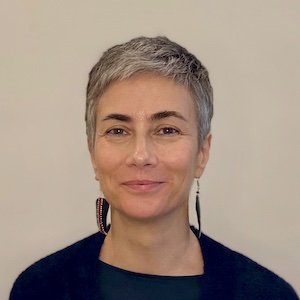
Cristina Sanchez


Cristina Sanchez
Cristina Sánchez is a full professor of Biochemistry and Molecular Biology at the Faculty of Biology, Complutense University of Madrid, Spain.
She conducted some of the first pioneering studies on the antitumor potential of cannabinoids and has since dedicated nearly three decades to researching the therapeutic potential of the endocannabinoid system in cancer. Her research group focuses primarily on elucidating the role of this system in the development and progression of tumors—especially breast cancer—with the ultimate goal of identifying it as a therapeutic target and as a source of biomarkers for prognosis and treatment response prediction.
Cristina currently serves as President of SEIC (Spanish Society for Cannabinoid Research) and is Secretary and founding member of the Spanish Observatory of Medicinal Cannabis.
Below is a selection of her key publications in the field:
—Tundidor, I., Seijo-Vila, M., Blasco-Benito, S., Rubert-Hernández, M., Adámez, S., Andradas, C., … & Pérez-Gómez, E. (2023). Identification of fatty acid amide hydrolase as a metastasis suppressor in breast cancer. Nature Communications, 14(1), 3130.
Blasco-Benito, S., Moreno, E., Seijo-Vila, M., Tundidor, I., Andradas, C., Caffarel, M. M., … & Sánchez, C. (2019). Therapeutic targeting of HER2–CB2R heteromers in HER2-positive breast cancer. Proceedings of the National Academy of Sciences, 116(9), 3863-3872.
Blasco-Benito, S., Seijo-Vila, M., Caro-Villalobos, M., Tundidor, I., Andradas, C., García-Taboada, E., … & Sánchez, C. (2018). Appraising the “entourage effect”: Antitumor action of a pure cannabinoid versus a botanical drug preparation in preclinical models of breast cancer. Biochemical pharmacology, 157, 285-293.
Velasco, G., Sánchez, C., & Guzmán, M. (2012). Towards the use of cannabinoids as antitumour agents. Nature Reviews Cancer, 12(6), 436-444.
Pérez-Gómez, E., Andradas, C., Blasco-Benito, S., Caffarel, M. M., García-Taboada, E., Villa-Morales, M., … & Sánchez, C. (2015). Role of cannabinoid receptor CB2 in HER2 pro-oncogenic signaling in breast cancer. Journal of the National Cancer Institute, 107(6), djv077.
Caffarel, M. M., Andradas, C., Pérez-Gómez, E., Guzmán, M., & Sánchez, C. (2012). Cannabinoids: a new hope for breast cancer therapy?. Cancer treatment reviews, 38(7), 911-918.
Sánchez, C., Galve-Roperh, I., Canova, C., Brachet, P., & Guzmán, M. (1998). Δ9‐Tetrahydrocannabinol induces apoptosis in C6 glioma cells. FEBS letters, 436(1), 6-10.
Galve-Roperh, I., Sánchez, C., Cortés, M. L., del Pulgar, T. G., Izquierdo, M., & Guzmán, M. (2000). Anti-tumoral action of cannabinoids: involvement of sustained ceramide accumulation and extracellular signal-regulated kinase activation. Nature medicine, 6(3), 313-319.
Guzman, M., Duarte, M. J., Blazquez, C., Ravina, J., Rosa, M. C., Galve-Roperh, I., Sánchez, C., Velasco, G., & González-Feria, L. (2006). A pilot clinical study of Δ9-tetrahydrocannabinol in patients with recurrent glioblastoma multiforme. British journal of cancer, 95(2), 197-203.

Ricardo Ferreira


Ricardo Ferreira
Ricardo Ferreira is a physician specialized in Orthopedics and Traumatology from the Federal University of Rio de Janeiro. Throughout his career, he has earned more than ten certifications in his field, including specialist titles in Orthopedics and Traumatology granted by the Ministry of Education (MEC), the Brazilian Society of Orthopedics and Traumatology (SBOT), and the Brazilian Medical Association (AMB). He is a full member of the Brazilian Society of Orthopedics and Traumatology and the Brazilian Society of Spine Surgery; a member of the North American Spine Society (NASS); and a spine specialist and member of AO Spine International. Additionally, he holds a specialization in pain management from the Brazilian Society for the Study of Pain and an MBA in Health Management from COPPEAD.
Ricardo Ferreira is recognized as one of the pioneers in the application of Endocannabinoid Medicine in Brazil.
Franjo Grotenhermen


Franjo Grotenhermen
Dr. Franjo Grotenhermen is a physician, researcher, and author recognized internationally as a leading expert in Endocannabinoid Medicine. For over two decades, he has dedicated his career to studying the therapeutic potential of the cannabis plant.
He has authored numerous articles, books, and book chapters on the clinical applications, pharmacology, and toxicology of cannabinoids, and is considered one of the pioneering physicians in organizing and systematizing this body of knowledge globally. Dr. Grotenhermen is the founder of the International Alliance for Cannabinoid Medicines (IACM), the oldest and most influential medical society dedicated to advancing the scientific understanding of Endocannabinoid Medicine.
His life and contributions were featured in the acclaimed documentary “The Doctor,” which received widespread recognition at film festivals around the world.
Below is a selection of his key publications in the field:
Sua biografia foi retratada no documentário “The Doctor“, amplamente premiado em festivais de cinema pelo mundo. Abaixo segue uma seleção das suas principais publicações na área:
Grotenhermen, F. (2003). Pharmacokinetics and pharmacodynamics of cannabinoids. Clinical pharmacokinetics, 42, 327-360.
Grotenhermen, F., & Russo, E. (2002). Cannabis and cannabinoids: pharmacology, toxicology, and therapeutic potential. Psychology Press.
Grotenhermen, F. (2004). Cannabinoids for therapeutic use: designing systems to increase efficacy and reliability. American Journal of Drug Delivery, 2, 229-240.
Grotenhermen, F. (2007). The toxicology of cannabis and cannabis prohibition. Chemistry & biodiversity, 4(8), 1744-1769.Grotenhermen, F., & Müller-Vahl, K. (2016). Medicinal uses of marijuana and cannabinoids. Critical Reviews in Plant Sciences, 35(5-6), 378-405.
David Nutt


David Nutt
David John Nutt is an English neuropsychopharmacologist specializing in the study of drugs that affect the brain and treat conditions such as addiction, anxiety, and sleep disorders. He is the founder and chairman of Drug Science, a non-profit organization established in 2010 to provide independent, evidence-based information on drugs. Nutt currently holds the Edmond J. Safra Chair in Neuropsychopharmacology at Imperial College London and directs the Neuropsychopharmacology Unit within the Division of Brain Sciences. He has served on the Committee on Safety of Medicines and was President of the European College of Neuropsychopharmacology.
In 2007, he published a landmark study on the harms of drug use in The Lancet, which ultimately led to his dismissal from the UK Advisory Council on the Misuse of Drugs (ACMD). Following this, he and several colleagues resigned and founded the Independent Scientific Committee on Drugs, now known as Drug Science.
Through Drug Science, Nutt has spearheaded influential drug policy reports and campaigns advocating for evidence-based drug policies, including Project Twenty21, the Medical Cannabis Working Group, and the Medical Psychedelics Working Group. In 2013, Drug Science launched the peer-reviewed Journal of Drug Science, Policy and Law, with Nutt as Editor.
Nutt is deputy head of the Centre for Psychedelic Research at Imperial College London. His team has conducted pioneering research into the use of psilocybin for treatment-resistant depression and neuroimaging studies involving psilocybin, MDMA, LSD, and DMT.
Among his accolades, Nutt received the 2013 John Maddox Prize for promoting sound science and evidence on public interest topics despite facing opposition. He is a former president of the British Neuroscience Association and the European Brain Council. His book Drugs Without the Hot Air (UIT Press) won the Salon London Transmission Prize in 2014.
Below is a selection of her key publications in the field:
Nutt DJ, King LA, Phillips LD; Independent Scientific Committee on Drugs. Drug harms in the UK: a multicriteria decision analysis. Lancet. 2010 Nov 6;376(9752):1558-65. doi: 10.1016/S0140-6736(10)61462-6. Epub 2010 Oct 29. PMID: 21036393.
Nutt D, King LA, Saulsbury W, Blakemore C. Development of a rational scale to assess the harm of drugs of potential misuse. Lancet. 2007 Mar 24;369(9566):1047-53. doi: 10.1016/S0140-6736(07)60464-4. PMID: 17382831.
Carhart-Harris RL, Bolstridge M, Rucker J, Day CM, Erritzoe D, Kaelen M, Bloomfield M, Rickard JA, Forbes B, Feilding A, Taylor D, Pilling S, Curran VH, Nutt DJ. Psilocybin with psychological support for treatment-resistant depression: an open-label feasibility study. Lancet Psychiatry. 2016 Jul;3(7):619-27. doi: 10.1016/S2215-0366(16)30065-7. Epub 2016 May 17. PMID: 27210031.
Carhart-Harris RL, Leech R, Hellyer PJ, Shanahan M, Feilding A, Tagliazucchi E, Chialvo DR, Nutt D. The entropic brain: a theory of conscious states informed by neuroimaging research with psychedelic drugs. Front Hum Neurosci. 2014 Feb 3;8:20. doi: 10.3389/fnhum.2014.00020. PMID: 24550805; PMCID: PMC3909994.
Nutt D. Psychedelic drugs-a new era in psychiatry? . Dialogues Clin Neurosci. 2019;21(2):139-147. doi: 10.31887/DCNS.2019.21.2/dnutt. PMID: 31636488; PMCID: PMC6787540.
Nutt D, Erritzoe D, Carhart-Harris R. Psychedelic Psychiatry’s Brave New World. Cell. 2020 Apr 2;181(1):24-28. doi: 10.1016/j.cell.2020.03.020. PMID: 32243793.
Nutt DJ, Morgan C, Klaire S. A Perspective on Psychedelics as Treatments for Addictions. J Stud Alcohol Drugs. 2024 Sep;85(5):583-588. doi: 10.15288/jsad.23-00032. Epub 2024 Mar 22. PMID: 38517747; PMCID: PMC11694248.
Adán de Salas


Adán de Salas
Adán de Salas Quiroga is a biologist with expertise in neurobiology. He holds a Master’s degree in Biochemistry, Molecular Biology, and Biomedicine from the Complutense University of Madrid. In 2017, he earned his Ph.D. from the same institution with a dissertation on the role of the endocannabinoid system in the development of the mammalian embryonic brain and the effects of prenatal exposure to cannabinoids.
He has worked as a postdoctoral researcher at several prestigious national and international institutions, where he received additional training in electrophysiology and cancer research. Currently, Adán is dedicated to delivering high-quality education to healthcare professionals and organizations on cannabis and the endocannabinoid system.
Below is a selection of his key publications in the field:

Paola Pineda


Paola Pineda
Paola Pineda is a medical doctor specialized in Medical Law from Universidad Pontificia Bolivariana and holds a Master’s degree in HIV from Universidad Rey Juan Carlos. With eight years of experience using cannabis as a therapeutic tool, she has supported the treatment of over 5,000 patients. Paola is a founding member of Grupo Curativa in Colombia, where she focuses on researching the cannabis plant, exploring its therapeutic potential and possible synergies with other substances.

Dartiu Xavier


Dartiu Xavier
Dartiu Xavier graduated in Medicine from Escola Paulista de Medicina and earned his Master’s and Ph.D. in Psychiatry from the Federal University of São Paulo (UNIFESP) in 1997. He has served as a consultant for the Brazilian Ministry of Health and the National Drug Secretariat at the Ministry of Justice. He is a member of the American Psychiatric Association and the International Association for Analytical Psychology, and has been a collaborating researcher at the University of California, Los Angeles (UCLA).
Dr. Xavier was president of the Brazilian Society of Analytical Psychology (SBPA) and founded the Brazilian Multidisciplinary Association for Studies on Alcohol and Drugs (ABRAMD). He is currently a full professor at UNIFESP, with expertise spanning Psychiatry, Psychology, and Neurosciences. His main research and clinical interests include alcohol and drug dependence (including harm reduction), depression, attention deficit disorder, impulse control disorders, psychiatric comorbidities, analytical psychology, and neuropsychiatry. In addition to his academic role as Associate Professor in the Department of Psychiatry at UNIFESP, he maintains a private psychiatric practice.
Below is a selection of her key publications in the field:
Daldegan-Bueno, D., Morais, P. R., Maia, L. O., Areco, K. C. N., Fidalgo, T. M., Fischer, B., & da Silveira, D. X. (2022). Socio-demographic, health and drug use characteristics among people with different frequency patterns of cannabis use in Brazil. Drugs: Education, Prevention and Policy, 30(4), 425–433.
Jardim AV, Jardim DV, Chaves BR, Steglich M, Ot’alora G M, Mithoefer MC, da Silveira DX, Tófoli LF, Ribeiro S, Matthews R, Doblin R, Schenberg EE. 3,4-methylenedioxymethamphetamine (MDMA)-assisted psychotherapy for victims of sexual abuse with severe post-traumatic stress disorder: an open label pilot study in Brazil. Braz J Psychiatry. 2021 Mar-Apr;43(2):181-185. DOI: 10.1590/1516-4446-2020-0980
Filev R, Engelke DS, Da Silveira DX, Mello LE, Santos-Junior JG. THC inhibits the expression of ethanol-induced locomotor sensitization in mice. Alcohol. 2017 Dec;65:31-35.
A phenomenological analysis of the subjective experience elicited by ibogaine in the context of a drug dependence treatment DOI: 10.1556/2054.01.2017.007
Barbosa PC, Strassman RJ, da Silveira DX, Areco K, Hoy R, Pommy J, Thoma R, Bogenschutz M. Psychological and neuropsychological assessment of regular hoasca users. Compr Psychiatry. 2016 Nov;71:95-105.
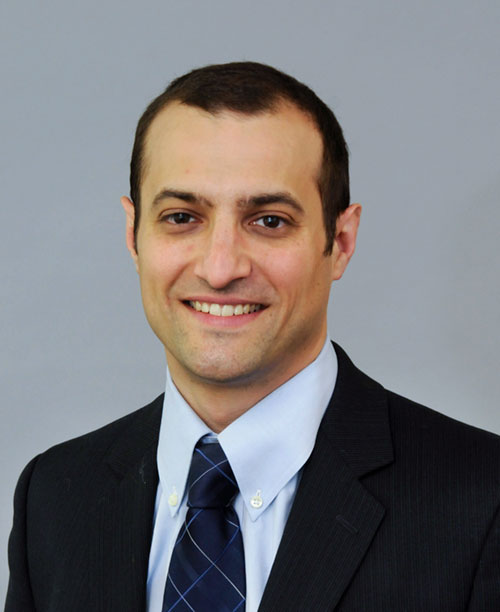
Adam Aboodely


Adam Aboodely
Dr. Adam Abodeely, MD, MBA, FACS, FASCRS, is a double board-certified surgeon specializing in gastrointestinal diseases and cancer. He is the founder and CEO of Adirondack Gastrointestinal & Colorectal Surgery LLC. Since 2010, Dr. Abodeely has incorporated cannabis-based therapies into the care of patients with gastrointestinal conditions and cancer.
In 2024, he was appointed to the New York State Medical Cannabis Advisory Council (MCAC) and named Chair of the New York State Committee on Cannabis for Inflammatory Bowel Disease. Dr. Abodeely is also the CEO and co-founder of Coral Cove Wellness Resort, a holistic wellness destination in Jamaica. He is the author of A Surgeon’s Perspective on the Science & Truth of Cannabis, and has published research in several peer-reviewed surgical journals. In addition, he has developed educational platforms focused on the science and clinical applications of cannabinoid-based therapies.
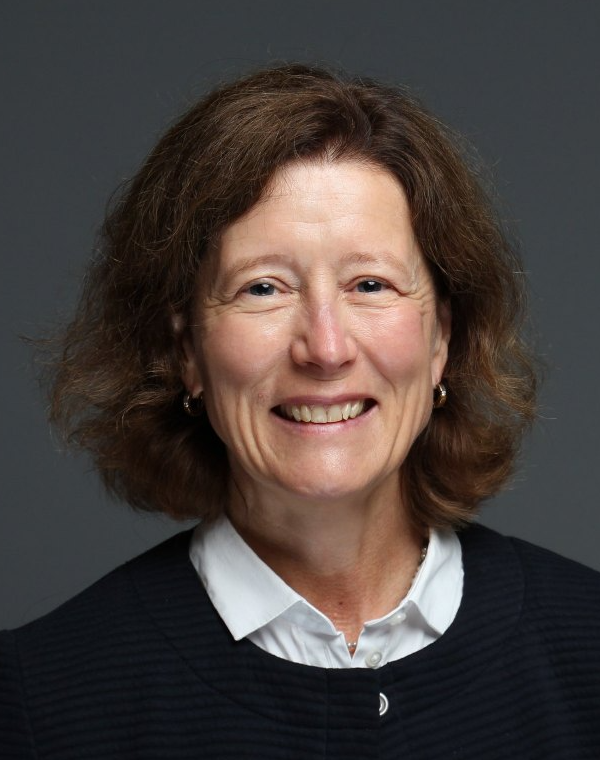
Kirsten Müller-Vahl


Kirsten Müller-Vahl
Dr. Kirsten Müller-Vahl is Professor of Psychiatry at the Department of Psychiatry, Social Psychiatry and Psychotherapy at the Medical School of Hannover (MHH), Germany. She is a specialist in neurology and adult psychiatry. Since 1995, she has been head of the outpatient department for Tourette’s syndrome at MHH. She chairs the German Association for Cannabinoid Medicines (ACM) and is a board member of the International Alliance for Cannabinoid Medicines (IACM). At the 9th IACM Conference, she received the “2017 IACM Clinical Research Award for special achievements in the reintroduction of cannabis and cannabinoids as medicine”. She published > 220 scientific articles, is author of several book chapters and textbooks. She is associate editor of the journal Cannabis and Cannabinoid Research and a member of the editorial board of the journal Medical Cannabis and Cannabinoids.
Below is a selection of her key publications in the field:
Müller-Vahl, K. R., Schneider, U., Koblenz, A., Jöbges, M., Kolbe, H., Daldrup, T., & Emrich, H. M. (2002). Treatment of Tourette’s syndrome with Δ9-tetrahydrocannabinol (THC): a randomized crossover trial. Pharmacopsychiatry, 35(02), 57-61.
Muller-Vahl, K. R., Schneider, U., Prevedel, H., Theloe, K., Kolbe, H., Daldrup, T., & Emrich, H. M. (2003). D9-Tetrahydrocannabinol (THC) is Effective in the Treatment of Tics in Tourette Syndrome: A 6-Week Randomized Trial. Journal of Clinical Psychiatry, 64(4), 459-465.
Müller-Vahl, K. R., & Emrich, H. M. (2008). Cannabis and schizophrenia: towards a cannabinoid hypothesis of schizophrenia. Expert Review of Neurotherapeutics, 8(7), 1037-1048.
Grotenhermen, F., & Müller-Vahl, K. (2012). The therapeutic potential of cannabis and cannabinoids. Deutsches Ärzteblatt International, 109(29-30), 495.
Pringsheim, T., Okun, M. S., Müller-Vahl, K., Martino, D., Jankovic, J., Cavanna, A. E., … & Piacentini, J. (2019). Practice guideline recommendations summary: treatment of tics in people with Tourette syndrome and chronic tic disorders. Neurology, 92(19), 896-906.
Kirsten R Müller-Vahl and others, Stop that! It’s not Tourette’s but a new type of mass sociogenic illness (2022). Brain, 145 (2), 476–480.
Scientific Program
Click the button below to check out the full schedule of the WeCann Summit 2025
Official Sponsors
DIAMOND

GOLD




SILVER









Institutions supporting WeCann Summit

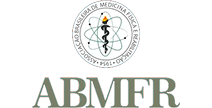




Royal Palm Hall
The best event center in Brazil to welcome you to the biggest and best Endocannabinoid Medicine event in the world.
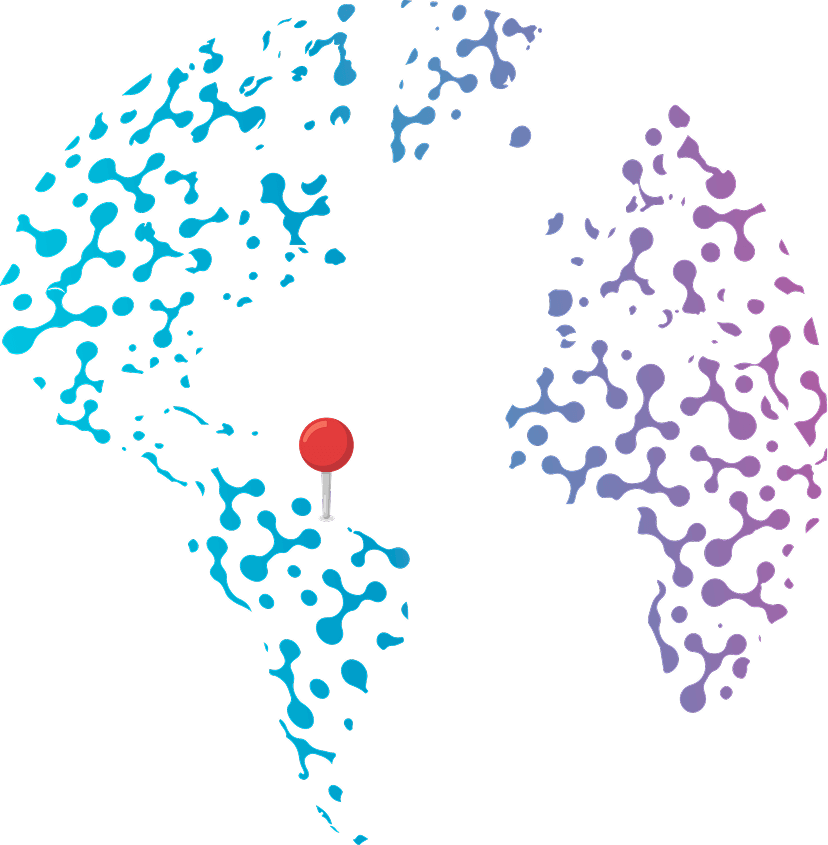


Showcase your brand at WeCann Summit 2025
About WeCann
WeCann Academy is an International Community and a center for training and education in Endocannabinoid Medicine. It brings together nationally and internationally renowned experts, combining scientific knowledge and practical experience at a highly qualified level.
Our purpose is to build an active community through the exchange of experiences that promote new possibilities in Medicine.
Our online events have already reached over 40,000 physicians from 59 countries. In October 2024, we held in Campinas-SP the second edition of the largest Endocannabinoid Medicine Congress in the world — the WeCann Summit — with over 1,400 physicians from more than 60 specialties and areas of practice in attendance.
We believe in safe, effective, and accessible treatments based on the Endocannabinoid System, aimed at minimizing the suffering of patients with chronic and debilitating conditions, and promoting well-being on a large scale.